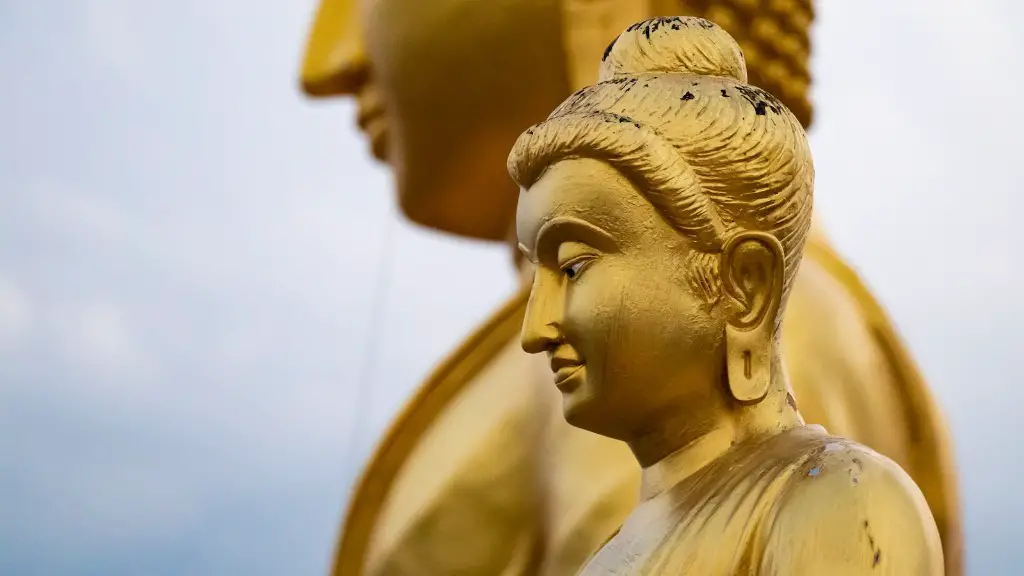Islam is a religion that is based on the belief in one God and the peace that comes with following His teachings. One of the main pillars of Islam is giving to those in need, which is why Muslims are always looking for ways to help those less fortunate. Donating hair is one of the many ways that Muslims can help those in need. There are many people who are suffering from hair loss due to medical conditions or treatments, and donations of hair can help to make their lives a little bit easier.
There is no clear cut answer as to whether or not one can donate hair in Islam. The act of donating hair is not mentioned in the Quran or Hadith, so there is no clear guidance on the matter. Some scholars argue that because the act of donating hair is not specifically mentioned, it is therefore permissible. Others argue that because the act is not specifically mentioned, it is therefore not permissible. There is no clear consensus on the matter, so it is up to each individual Muslim to make a decision based on their own understanding of Islamic teachings.
Is it allowed to donate hair in Islam?
There is nothing wrong with donating one’s hair to a patient. It is a virtuous act. However, there is no harm in having one’s hair cut to a reasonable extent for the sake of adornment in a way that does not resemble men.
There is no restriction on what can be donated as part of charity. Anything good can be donated to help others.
Is it okay to donate hair
Adults and children can donate their hair to organizations that accept it. However, it is important to check with the organization first to see if they have any restrictions on the type of hair they will accept. For example, some organizations may only accept hair that is natural, while others may accept hair that has been colored, permed, highlighted, bleached, or dreadlocked. Additionally, some organizations may only accept hair with a certain percentage of gray in it, while others may not accept gray hair at all.
It is permissible to wear a wig to cover a defect in the case of a woman who is bald or has lost her hair due to medication or illness such as chemotherapy.
Is it haram to donate Organs?
Organ donation is a difficult topic for many Muslims because it involves the human body, which is considered sacred. The Prophet Muhammad, upon him be peace, said that the body remains sacred even after death and should not be harmed. This prohibition against harming the body extends to organ donation, which is why many Muslims believe it is haram.
It is important to honor our hair, as it is something that we have been blessed with. We should take care of it by cleaning, combing and perfuming it, as this will make us feel more confident and presentable.
Is hair transplant halal Islam?
The Islamic Fiqh Academy has ruled that hair transplantation and cosmetic surgeries are halal, as long as they are done for a necessary purpose such as restoring the body to its natural state. This ruling is in line with the Quran, which states that God has created us in the best possible form and wants us to take care of our bodies.
The four major Sunni schools of thought require women to cover their hair, and the entire body except her hands and face, while in the presence of people of the opposite sex other than close family members. This is an obligation that is held by consensus among these schools of thought.
Is hair removal halal
In Islam, there are specific guidelines regarding how men and women should groom themselves. For women, it is not acceptable to remove hair from any part of the face or to dress in a way that imitates men. As for men, they are not allowed to remove hair from any part of their bodies, including their faces. However, they are allowed to trim their moustaches. Men are also forbidden from trimming or plucking their eyebrows.
Most organizations prefer that hair be uncolored and in good condition. ponytailed with elastics at the ends to keep it from tangling.
What hair Cannot be donated?
Any hair not bundled in a ponytail or braid cannot be used. This includes hair swept off the floor or shaved without being bundled. Dreadlocks cannot be used in our children’s hairpieces. Part of the preparation to blend hair donations together involves combining individual strands of hair.
Do What You Want is a fundraiser that allows people to donate their hair to children with cancer. This is a great way to help find cures for kids with cancer and to also donate your hair. If you are not ready to rock a bald head, you can still donate your hair by signing up as a shavee.
Is hair Awrah in Islam
In the madhhab of Imam al-Syafie, the great scholars of the madhhab mostly agreed that the hair of a woman that is cut or separated from her body is still considered awrah and is prohibited from being seen by any ajnabi man.
It is permissible for Muslim women to wear makeup, as long as their intentions are pure and the makeup does not contain any haram products. Cosmetics that are temporary, such as henna, are not considered haram.
Is shaving hair prohibited in Islam?
Al-Nammash means removing facial hair using a shaver. This act is prohibited except when a woman has facial hair such as a beard and moustache, then it is not haram to shave them. Al-Hafiz Ibn Hajar al-Asqalani when commenting on this hadith stated: “Al-Nammash means removing facial hair using a shaver. This is not permissible except in the case of a woman who has facial hair such as a beard and moustache. In such a case, it is not haram to shave them.”
Muslims are always buried, never cremated. It is a religious requirement that the body be ritually washed and draped before burial, which should be as soon as possible after death. Those carrying out this duty should be immunised against hepatitis B and be aware of the hazards of AIDS.
Conclusion
Yes, you can donate hair in Islam.
There is no definitive answer to this question as there is no explicit mention of hair donation in the Quran. However, some scholars argue that because hair is considered ‘awrah (private parts), it should not be donated. Others argue that because hair is not considered ‘awrah, it can be donated. Ultimately, it is up to the individual to decide whether or not to donate their hair.




